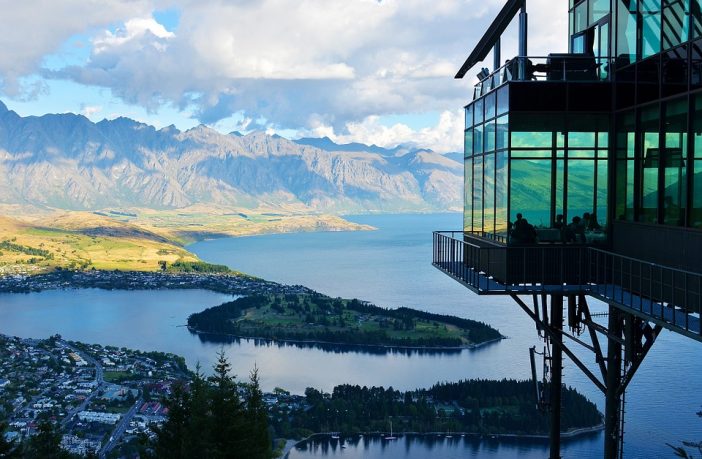Unparalleled scenery, huge open spaces and the shooting location for Lord Of The Rings: it’s no wonder that so many Brits are moving to New Zealand!
Let’s find out what you need to know before you make the move.

Everything you need to know about moving to New Zealand
Contents
Why Move to New Zealand?
At 11,500 miles away — and a quick jump across the hemispheres — it’s a long way home for people moving to New Zealand from the UK.
But for many people, the distance is more than worth it.
New Zealand offers an incredibly high standard of living for the expats who live over here, with a relaxed pace of life and the perfect blend of beautiful cities with outstanding acres of green space, native parks, beaches, mountains, forests, rivers, lakes and fjords.
You cannot ever be more than 128 km from the sea wherever you are in the country, so you know that this is one of the best places on earth for those who love the outdoors.
The Brits, especially, love New Zealand — it’s been voted as their favourite country for the 4th consecutive year in the Telegraph Travel awards!
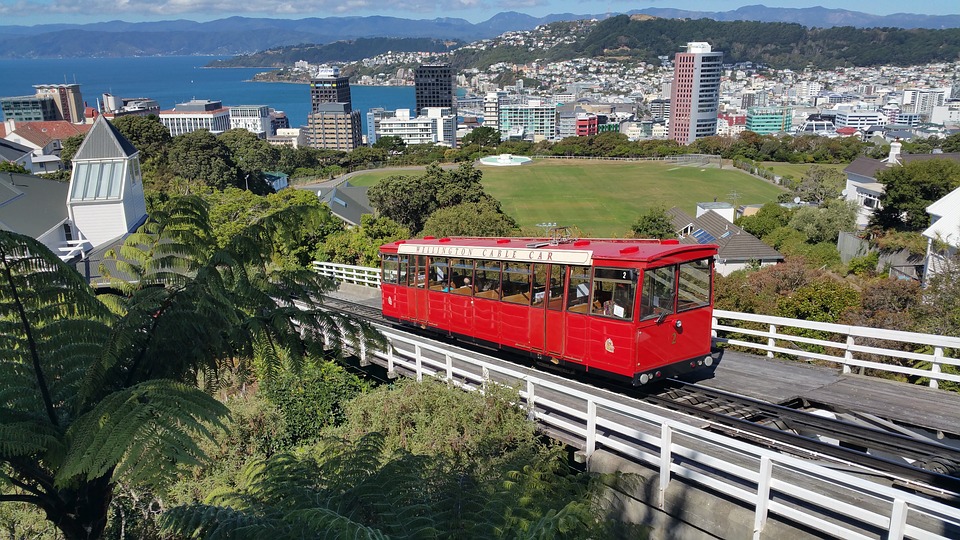
Wellington
While the climate varies from north to south, the weather is generally very temperate in New Zealand, with plenty of fresh air and a strong exposure to the sun.
But while New Zealand may be at the other end of the world, culturally it’s not too many moons apart from the UK. English is the primary language, their cities and infrastructure are just as efficient and effective as the West, while there are a few visa and healthcare agreements in place between the two countries.
New Zealand Visa Requirements For Brits
Brits can stay in New Zealand for 6 months without a visa.
For people that want to move to New Zealand for the long-term, a Resident Visa will likely be in your sights. This allows you to live and work in the country indefinitely, as well as access most publicly funded services.
In order to get this visa, you will need to categorised as a ‘skilled migrant’ under a points based system, which measures work experience, qualifications, and a job offer of skilled employment. You must also be under 55, and meet various language, health and character requirements.
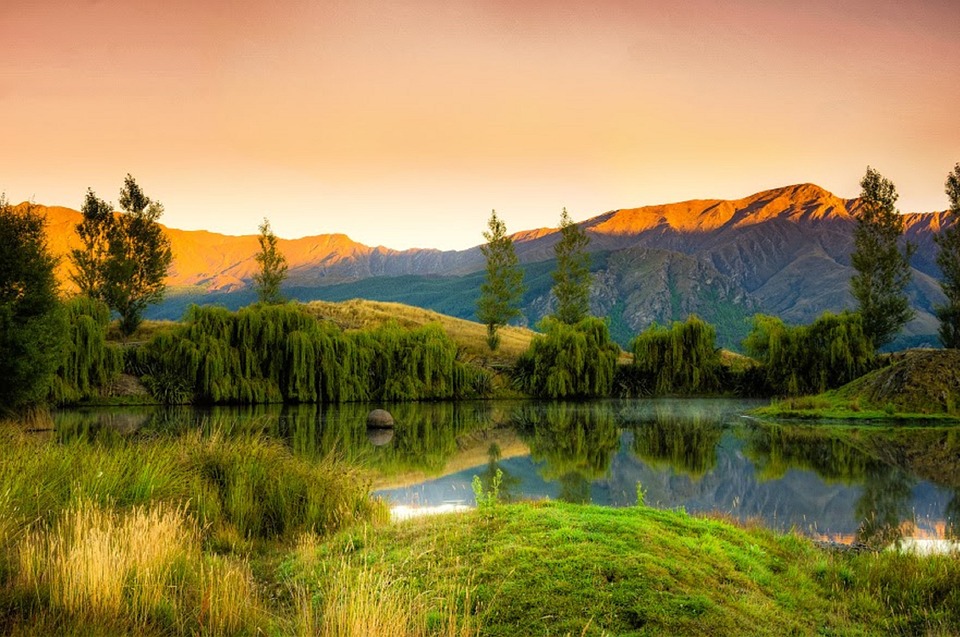
If you don’t qualify as a skilled migrant, you may be able to get a Residence From Work Visa, which you may be able to apply for after working on a temporary Work To Residence Visa for 2 years. Again this will allow you to stay and work indefinitely and access most public services.
Just generally speaking, if you want to work in New Zealand, you will require a work visa which normally requires either a job or job offer already in hand.
Brits aged between 18 to 30 are allowed to stay up to 23 months in the country under a Working Holiday Visa.
There’s also the Essential Skills work visa for temporary stays for essential skills in demand that can’t be met by local workers; the Work to Residence Long Term Skill Shortage visa for permanent/long term jobs on the skills shortage list; and Work to Residence Accredited Employer visa.
Visas are also available for accompanying partners and children, as well as parents of New Zealand residents.
Investor visas are also an option for some people — you can find out more about the criteria for acceptable investments here. There are also options to retire to and invest in New Zealand.
Way of Life in New Zealand
Like many island nations, life in New Zealand is relaxed and laid-back, with a strong emphasis on sports and the outdoors.
If you’re moving to New Zealand from the UK, you’ll likely find that the things that caused you stress back home cease to exist over here.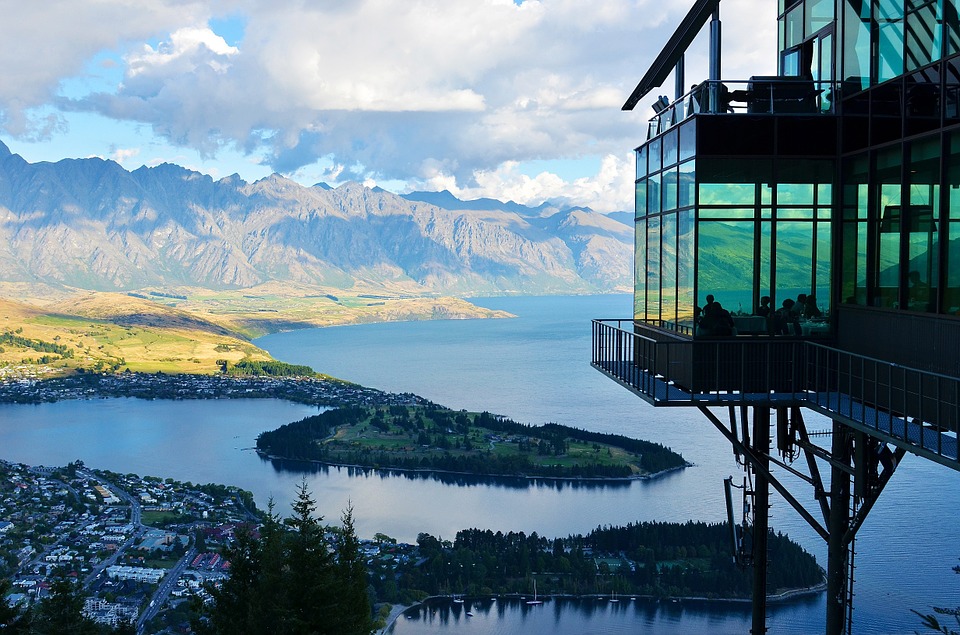
Work environment are generally relaxed with a lack of rigid hierarchical structures while long commutes in bad traffic will be a thing of the past.
Where in the UK you may spend your evenings in front of the TV and your weekends shopping in town, in New Zealand you’ll be forever active: whether that’s hiking up in the mountains, surfing at the beach or cycling the fjords.
Kiwis are a fun and friendly bunch of people, and you’ll find it easy to find common ground over rugby and netball — whether playing or cheering from the sidelines.
New Zealand is one of the world’s emerging wine countries, with 10 established regions across the two islands — that’s a lot of wine!
The climate varies hugely depending on where you are in the country, thanks to its long and thin shape. While the north island enjoys the sub-tropical weather of Australia and even Southeast Asia, the South can be very cold in the winter months. One thing’s for sure though — the skies are almost always clear and sunny.
While the standard of living is widely considered to be exceptional in New Zealand, one aspect that many locals and expats are often heard complaining about are the older style of houses in the country. These typically have a total lack of insulation, double glazing and central heating, and some even lack mainline sewage and gas lines.
This means that the weather outside is simply amplified inside — if it’s hot, it will be roasting, and if it’s cold, you’ll be freezing!
Maori culture is a very important part of life in the country, and is recognised throughout social communities, family and the workplace.
Cost of Living in New Zealand
Depending on your lifestyle, cost of living can vary widely in New Zealand although is generally cheaper outside of Wellington and Auckland.
If you’re moving from London, however, these cities are still likely to be comparatively cheap — they clocked in at 83rd and 61st respectively in the Mercer 2015 Cost of Living Survey, while London was near the top in 12th most expensive position.
Average monthly rent for a furnished, 900 square foot property in Auckland is around NZ$2,100 (£1,140) rising to NZ$3,157 (£1,715) in an ‘expensive’ neighbourhood.
Costs are cheaper in rural areas and cheaper still on the South island.
Public transport and even cars are comparatively cheaper than the UK.
As far as groceries and other goods go, the general rule of thumb is that anything imported is expensive, while all homegrown produce is more reasonably priced.
There is also a 15% GST (Goods and Services Tax), although this is generally always included in the price.
Popular Areas for Brits
Auckland
Auckland is probably the most popular area for people moving to New Zealand, despite not being the capital (it’s still the largest and most populous city though!).
It’s found on the North Island and spread over two harbours with coasts on the Pacific Ocean and Tasmanian Sea.
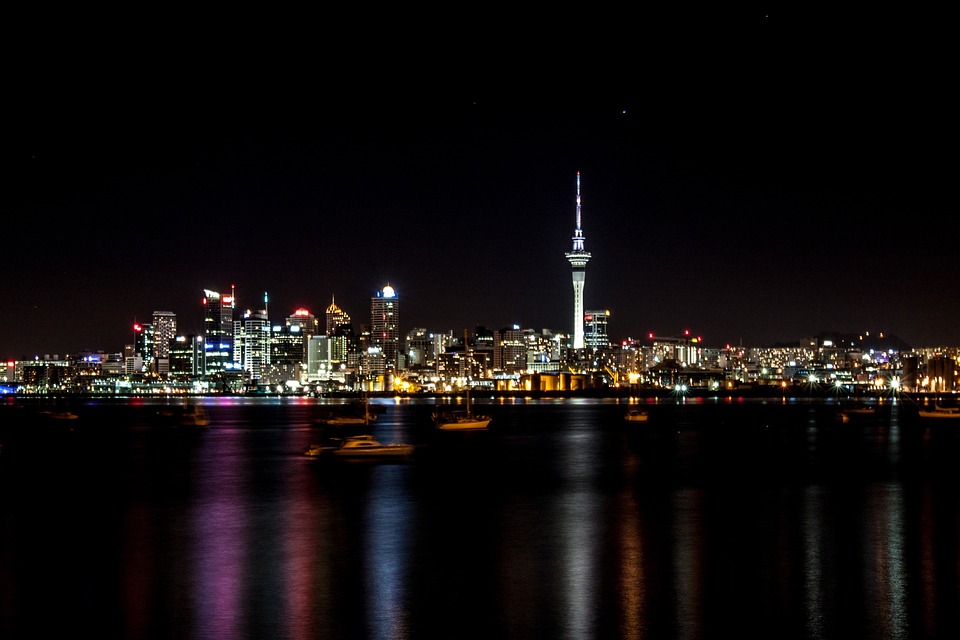
Auckland is the perfect spot for people after the efficiency and vitality of a city, with gorgeous nature and scenery to escape to right on your doorstep.
Home to native Kiwis, expats and Polynesian Islanders, Auckland is a diverse and rich city that boasts temperate weather and gorgeous summers. It’s the place to be if you’re looking for jobs, as New Zealand’s hub of commercial activity, and enjoys the highest salaries in the country.
Wellington
The world’s most southern capital, Wellington is a joyful city, again set across a harbour on the North Island, and never too far from wide open, green spaces.
For people that love the outdoors but need to be near a city, Wellington is perfect: it’s home to 363 km of mountain biking and hiking tracks!
It’s also the centre of New Zealand’s craft beer scene, and boasts more cafes, bars and restaurants per capita than New York City. Coffee, wine and culture are at the forefront of this cool city. It’s also cheaper to live in than Auckland further up the island.
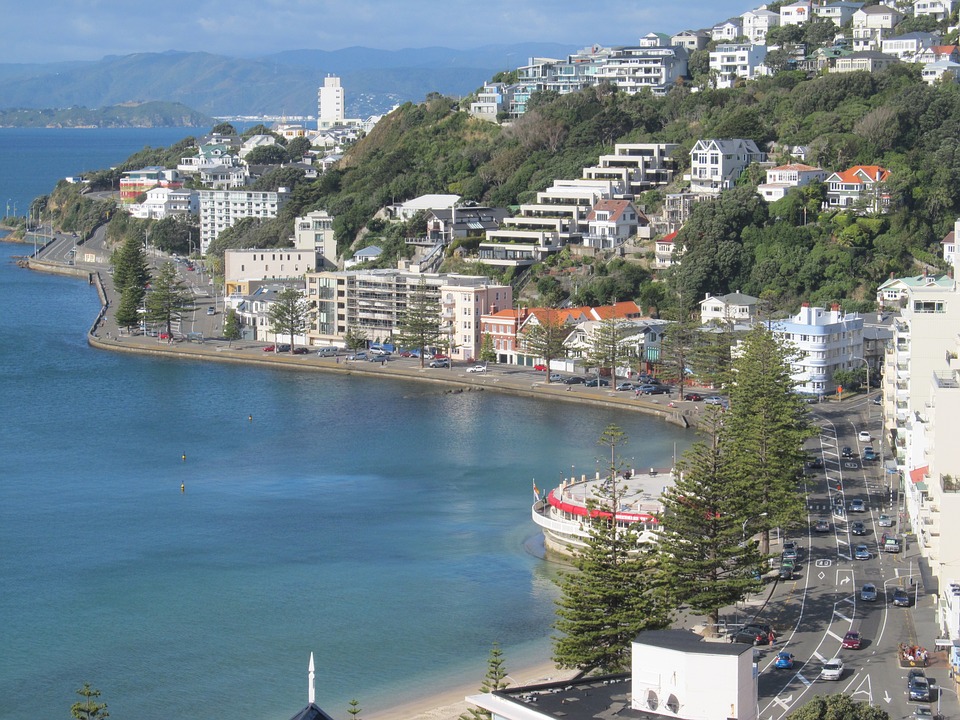
Christchurch
A garden city on the east coast of the South Island, Christchurch is very much a developing city, after being more or less devastated by an earthquake in 2011. Numerous powerful aftershocks since then have seen devastation in the city and many inhabitants move away.
Christchurch is no longer the beautiful city it once was, but much is being done to bring the city back together and hopefully propel it past the glory of its past.
Thanks to the seismic activity and consequent economic slow down, only a few expats are still choosing to move to Christchurch at this moment in time.
British Communities in New Zealand
There are a lot of British expats living in New Zealand, particularly in Auckland and Wellington, and combined with the friendly local Kiwis, you should have no problem settling here and making friends.
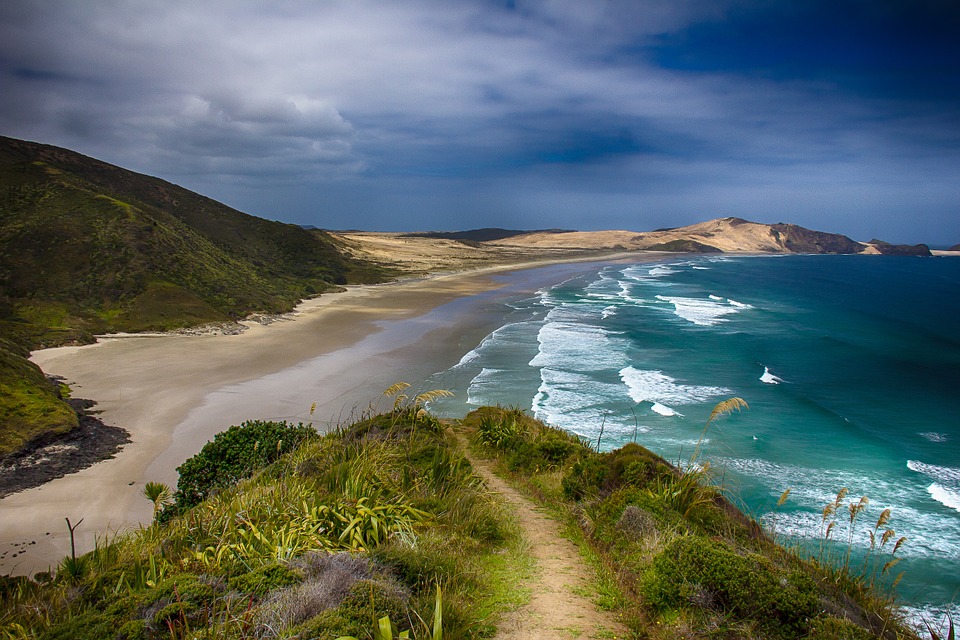
If you want a headstart in understanding New Zealand and the communities that live there, check out these helpful resources and blogs for people living there:
- New Zealand Now
- New Kiwis (great for job seekers)
- Wellington
- A UK Expat’s Guide to New Zealand
- Living in New Zealand
- InterNations New Zealand
- British Expats New Zealand
- Poms Away!
- British Expats in New Zealand
New Zealand Essentials
Jobs Economy
Although like much of the first world, New Zealand’s economy has slowed a little over the past few years, it has proved resilient and actually fared better than economies in the UK and Europe.
As such, there is a healthy jobs market in the country which is generally welcoming to foreigners and reasonably low on red tape.
If you’re qualified or accredited in a skilled profession, particularly those on the skills shortage list, you should have no problem finding a position from inside or outside the country before you arrive. You can check the status of your skills here.
Websites like New Kiwis are great job resources for both seeker and employer, whether you’re a local or global candidate.
Healthcare
If you’re moving to New Zealand from the UK and expecting an equivalent to the NHS, you’re going to be disappointed. You will need health insurance living here for your own peace of mind and your bank balance in the case of any health problems.
There is a reciprocal agreement in place between New Zealand and the UK where certain healthcare services may be subsidised from public funds. You will be entitled to some medical coverage for personal injury in case of accidents too, although this should be topped up by health insurance.
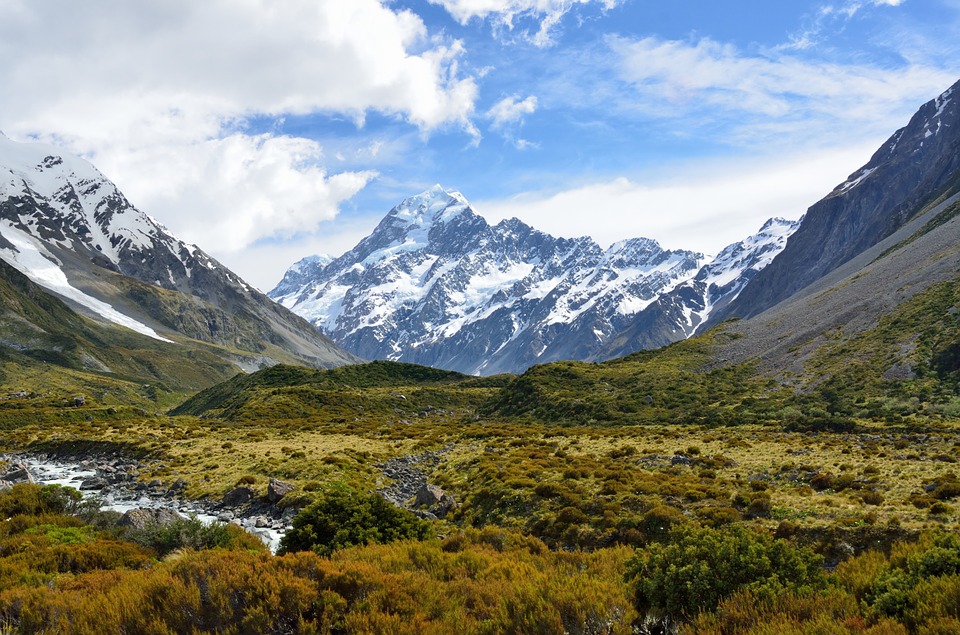
GP visits and prescriptions do come with a fee.
Healthcare in New Zealand is of a very high standard however, and it’s generally very easy to be seen by a doctor unless you live in a particularly remote area.
Bringing Kids to New Zealand
Thanks to the glorious fresh air and healthy lifestyle on offer, many Brits move to New Zealand with kids — and almost 70% of them say that the move encouraged confidence in their child.
Healthcare is of a high standard and there’s ample opportunity for activity and sports.
New Zealand schools are friendly and welcoming to foreign children, who can usually settle in and make friends quickly thanks to the lack of language barrier. School is mandatory between the ages of 6 to 16.
The education itself is of a high quality for pre-schoolers all the way up to university students. Only permanent residents are entitled to attend free public schools in New Zealand, with foreign children otherwise requiring a student visa — international student fees are generally reasonable and affordable, however.
Private schools and international schools are also available in New Zealand, although prices are generally higher than public school fees. International schools mostly follow the International Baccalaureate programme, and are known for being some of the best in the world.
As is common in the Southern Hemisphere, the school year in New Zealand runs from late-January to mid-December with four terms to a year.

